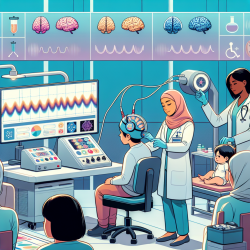As mental health professionals working within the educational system, we often find ourselves at the intersection of education and emotional well-being, carrying the weight of our students' challenges alongside our own professional burdens. In an era where the demands on educators and mental health staff are ever-increasing, feelings of burnout can become a common guest in our professional lives. However, amidst these challenges lies a powerful opportunity to transform our school cultures into environments that not only recognize the signs of burnout but actively work to inspire and rejuvenate our passion for the work we do.
The journey towards transforming school culture and combating burnout requires a multifaceted approach, focusing on both individual well-being and systemic change. It's about creating an environment where mental health professionals feel valued, supported, and inspired to continue their critical work. Here, we explore strategies to reignite that spark of passion and ensure that our schools are places where both students and staff can thrive.
Understanding Burnout Among Mental Health Professionals in Schools
Burnout is more than just an occasional feeling of being overwhelmed; it's a chronic state of physical, emotional, and mental exhaustion caused by prolonged stress. For mental health professionals in schools, this can manifest as feelings of cynicism, a sense of ineffectiveness, and a lack of accomplishment. Recognizing these signs early is crucial in preventing burnout from taking root and affecting our ability to support our students effectively.
Creating a Supportive School Culture
Transforming school culture begins with leadership. As administrators and leaders, we must prioritize the well-being of our staff as much as we do our students. This means creating a culture of support where mental health professionals feel heard, respected, and valued. Strategies include:
- Implementing regular check-ins and providing spaces for mental health staff to voice their concerns and needs.
- Encouraging a work-life balance through flexible scheduling and acknowledging the importance of personal time off.
- Providing professional development opportunities focused on self-care and burnout prevention.
Embracing Innovation: The Role of Online Therapy
In the face of therapist staffing shortages and increasing demands, embracing innovative solutions like online therapy can play a significant role in transforming school culture. Online therapy not only expands access to mental health services for students but also offers mental health professionals flexibility in how they deliver services. By integrating online therapy into our schools, we can:
- Reduce the workload on overburdened staff by providing an additional channel for student support.
- Offer mental health professionals opportunities to work from home, thereby enhancing work-life balance.
- Enable continuity of care for students, even in the face of unforeseen circumstances such as school closures.
Fostering a Community of Care
At the heart of transforming school culture is the development of a community of care—a network of support among staff that encourages sharing, collaboration, and mutual support. This community extends beyond the walls of the school, including parents, caregivers, and the wider community. By fostering strong relationships and open lines of communication, we create a supportive ecosystem that benefits everyone involved.
Leading by Example
As leaders in education, we must lead by example, demonstrating the values of empathy, resilience, and care in our actions. This means being transparent about our own challenges, seeking support when needed, and prioritizing our well-being alongside those we serve. By doing so, we not only enhance our own resilience but also inspire those around us to take proactive steps towards their well-being.
Conclusion
The path to transforming school culture is one that requires commitment, innovation, and a collective effort from all stakeholders. As mental health professionals, we have a unique opportunity to lead this change, creating environments where both staff and students feel supported, valued, and inspired. By embracing strategies such as online therapy, fostering a community of care, and leading by example, we can combat burnout and reignite our passion for the critical work we do. Together, we can build a school culture that not only addresses the challenges of today but also lays the foundation for a healthier, more resilient tomorrow.
In the face of adversity, let us remember why we embarked on this journey: to make a difference in the lives of those we serve. Let this mission be the light that guides us through the challenges, towards a future where every member of our school community can thrive.










